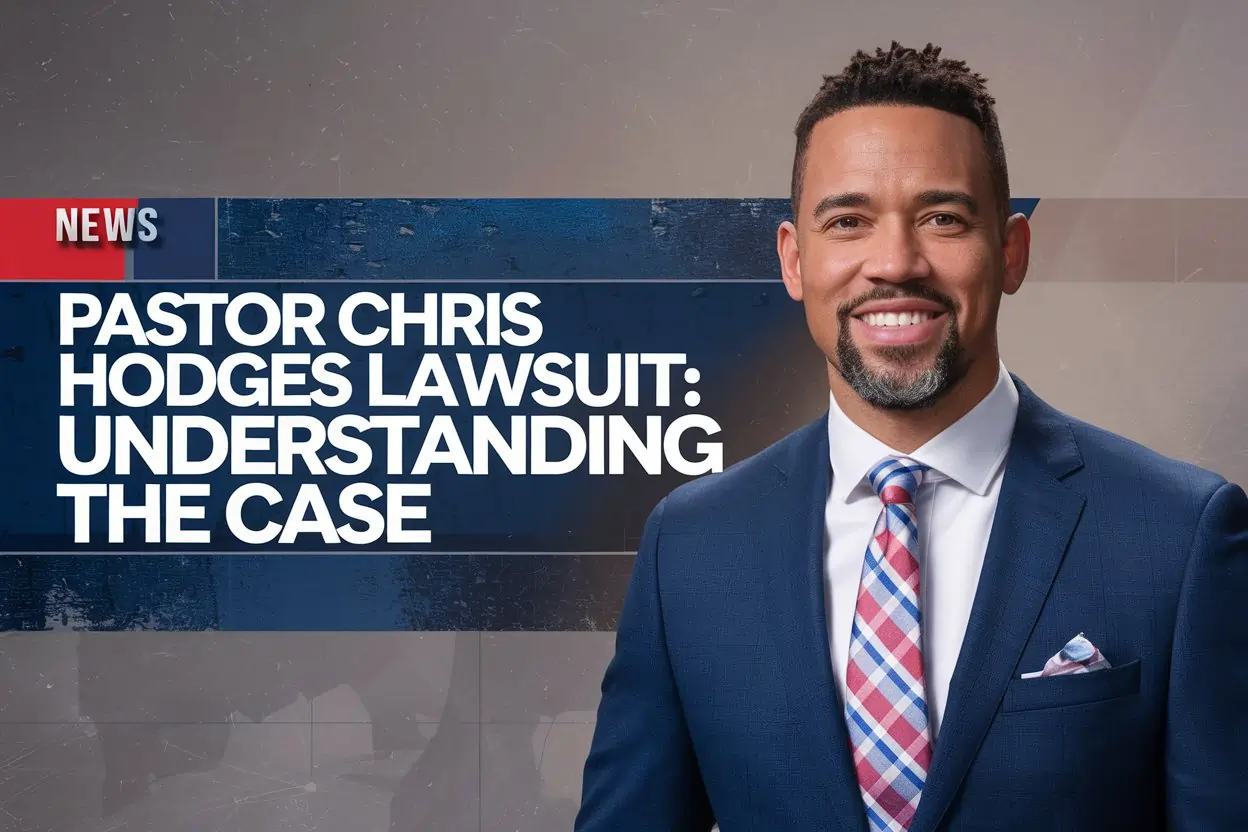Pastor Chris Hodges is the main pastor of Church of the Highlands in Alabama. He is a well-known leader in the Christian community. His church has many people who attend, and he helped start a group called the Association of Related Churches (ARC).
Over time, people have looked closely at how he leads the church. Some have raised questions about how the church is run, how money is handled, and if the leaders are doing the right thing. A recent lawsuit involving Pastor Hodges and ARC has become very important. People are now asking if the church and its leaders have made good decisions.
Who is Pastor Chris Hodges?
Pastor Chris Hodges started Church of the Highlands in Birmingham, Alabama. His church has grown to be one of the biggest in the country, with many people attending different locations. He also plays a big part in ARC, a group that helps start new churches across the U.S.
Pastor Hodges is known for his leadership and focus on growing churches. But, some people don’t agree with how fast the church is growing or how ARC is working. These disagreements led to a big lawsuit that has made people wonder if the church’s leaders are acting fairly and handling money the right way.
The Lawsuit Against Chris Hodges
In 2023, Stovall and Kerri Weems, who used to lead Celebration Church in Jacksonville, Florida, filed a lawsuit. They said that Pastor Hodges and other ARC leaders took over their church in an unfair way. They believe Hodges and his team used bad methods to push them out of leadership and take control of the church’s money and operations.
Accusations of Taking Over the Church
In the lawsuit, the Weemses say that Pastor Hodges and ARC made a plan to replace them with leaders who would follow ARC’s way of growing churches. The Weemses claim they were pushed to give money to ARC and follow its methods.
When they didn’t agree, they say that Pastor Hodges and others began trying to get them out of power. In 2022, the Weemses left their church, but they say they were forced to do so, and it wasn’t their choice.
They also say that ARC’s way of growing churches focused too much on making money, instead of focusing on helping people and doing missionary work. They believe that ARC’s leaders wanted to take control of their church’s money, which was a threat to the Weemses’ idea of what church leadership should be.
Concerns About Money and Ethics
A big part of the lawsuit is about how ARC handles money. The Weemses say that ARC puts a lot of pressure on churches to give a percentage of their earnings. Even after churches pay back loans, they are still required to give money to ARC.
The lawsuit says that this system cares more about making money than about helping churches grow spiritually.
The Weemses believe that ARC, led by Pastor Hodges, used its power to take advantage of churches for financial gain. They also say they were removed from leadership because they were seen as stopping ARC from making more money.

ARC’s Role in the Lawsuit
ARC is one of the biggest groups that helps new churches get started in the U.S. Its main goal is to help new churches grow and do well.
But, the lawsuit says that ARC’s way of working is not always fair. The Weemses believe that ARC cares more about growing and making money than about the people leading the churches or the people attending them.
Claims Against ARC
The Weemses argue that ARC leaders, including Pastor Hodges, used ARC’s power to pressure them into following ARC’s way of running churches. They believe that ARC asked for too much money from churches, making them focus on making money instead of helping their communities.
The lawsuit also says that ARC leaders worked together to take control of Celebration Church’s money by pushing the Weemses out of leadership.
The Weemses believe this was part of a bigger plan for ARC to grow its power and money in the Christian community.
Pastor Hodges’ Reply to the Lawsuit
Pastor Chris Hodges says he did nothing wrong. His legal team says that the claims made by the Weemses are not true. They say that ARC’s goal is to help churches grow, and they do not agree that ARC or its leaders have done anything wrong or illegal.
What Pastor Hodges’ Legal Team Said
Pastor Hodges’ lawyer said that the accusations are false. The lawyer said that Pastor Hodges is an honest man and that his ministry has helped many communities across the U.S. The legal team also said that ARC is a non-profit group, and its goal is to help churches, not to use them for money.
The legal team thinks the lawsuit is a misunderstanding, and they are sure the truth will come out as the case continues in court. Pastor Hodges himself is sad that the issue has led to a lawsuit, but he believes that ARC’s work is important and fair.
The Effect on Church of the Highlands
The lawsuit has made people worry about how Church of the Highlands is run. Some members are questioning how the church handles its money and its relationships with other churches. Even though Pastor Hodges is still leading the church, the lawsuit has made some people in the congregation think about the church’s direction.
Reactions from Church Members
Some members of Church of the Highlands are unhappy about the accusations, especially those related to money. However, others continue to support Pastor Hodges. They believe the lawsuit is trying to hurt his reputation and damage the good things the church has done.
The church has also faced questions about its role in ARC and whether it shares responsibility for the accusations made in the lawsuit. Pastor Hodges and other leaders at the church have said that they are still focused on helping the community, and the lawsuit will not stop them from doing their work.
Bigger Concerns for Evangelical Churches
The lawsuit against Pastor Chris Hodges and ARC is important for other Christian churches too. It raises questions about how churches are led, how they grow, and how they balance making money with their spiritual mission.
Church Growth Under Question
ARC’s focus on growing churches and making money has led to a debate in the Christian community. Some people think that this focus on financial success could hurt smaller churches and their leaders. These churches might feel they have to give money to ARC even if it makes it harder for them to do their work.
On the other hand, people who support ARC say that growing churches is important to reach more people, and financial stability is needed to help new churches start and do well. They believe that ARC’s way of running churches is a smart way to make sure churches have what they need to succeed.




